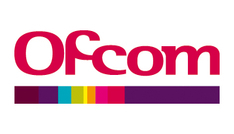

Consumers in the UK are benefiting from a boost to broadband speeds, Ofcom research has revealed, but the gap between actual and advertised services is widening, as Internet service providers continue to tout ‘up to’ speeds.
The average speed of broadband in the UK increased by 10 percent in the six months leading up to May 2011, rising from 6.2Mbps to 6.8Mbps; and almost half (47 percent) of UK residential broadband users are now on packages with advertised speeds above 10Mbps, compared to 42 percent in November 2010.
However, the average advertised speed in May 2011 was 15Mbps – 8.2Mbps higher than average actual speed. This is compared to a gap of 7.6Mbps at the end of last year.
“We are now seeing consumers increasingly move to higher rated services and enjoying genuinely faster speeds,” said Ofcom Chief Executive, Ed Richards. “However, the research is still telling us that some consumers are not receiving anywhere near the speeds that are being advertised by some ISPs.”
Ofcom has criticised ISPs in the past for advertising speeds that consumers are unable to receive. The root cause of the problem – aside from the commercial ambitions of the providers – is that copper is inherently inefficient when it comes to delivering data, so speeds slow down over long and poor quality lines, and because of electrical interference.
Earlier this year Ofcom recommended to CAP and BCAP, the committees that write the advertising codes administered by the Advertising Standards Authority, that a Typical Speeds Range (TSR) should be included in advertisements by ISPs who advertise based on the speed of the service.
The TSR should be given at least equal prominence to any maximum ‘up to’ speed, so as to give consumers a clearer idea of what speeds to expect. A maximum speed should only be used if it is achievable in practice by “a material number of consumers,” said Ofcom.
Customers with ‘superfast’ fibre-optic connections tend to get speeds much closer to those advertised, such as those from Virgin Media and BT’s Infinity package. The report shows that the average download speed on Virgin Media’s 30Mbps package was actually marginally higher than the advertised speed.
The Internet Services Providers’ Association (ISPA) particularly welcomed this news, describing superfast broadband as “central to the future of the UK economy”.
Predictably, Virgin Media, which fared best in the study, accused its rivals of misleading the public. Virgin has, however, recently had its “Stop the Con” advertising campaign, based around speeds, banned by the Advertising Standards Authority.
“We remain concerned that people paying for fast broadband are still being misled and believe it is absolutely essential that consumers have all the information they need to make an informed choice,” said the company in a statement. “We once again urge the ASA to bring about a rapid change in the way broadband services are being advertised.”
Four of the largest ISPs – BT, Sky, Virgin Media and O2 – have signed up to Ofcom’s new code of practice, which comes into effect today, and dictates that customers must be given a speed range (based on customers with similar line lengths), rather than a single point estimate. They should also be able to leave their provider without penalty if they receive a maximum line speed which is significantly lower than the bottom of the estimated range.
Pebble creator launches two new PebbleOS-based smartwatches with 30-day battery life, e-ink screens after OS…
Amazon loses appeal in Luxembourg's administrative court over 746m euro GDPR fine related to use…
Nvidia, xAI to participate in project backed by BlackRock, Microsoft to invest $100bn in AI…
Google agrees to pay $28m to settle claims it offered higher pay and more opportunities…
Chinese social media giant Tencent triples capital expenditure on AI data centres and other areas…
EU gives Apple demands for third-party developer access to iOS features and greater responsiveness in…